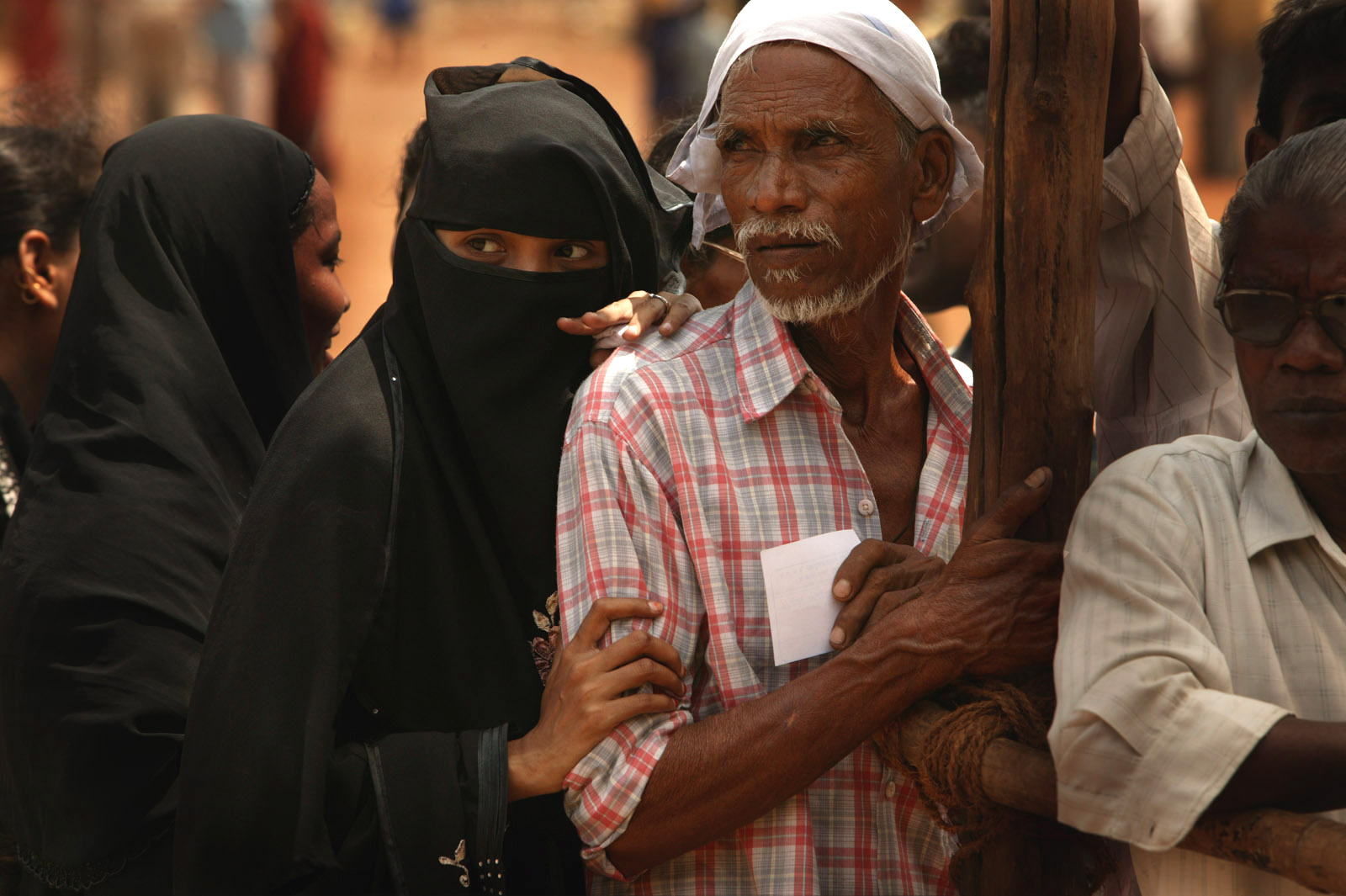
MUMBAI, India (BP)–Down-and-dirty campaign tactics. Candidates hurling charges and countercharges. Pampered movie stars speaking out on issues they know little about. A political family dynasty hanging in the balance. A high-stakes election at a critical time in foreign affairs.
The U.S. presidential race?
No. Think bigger than that — much bigger. We’re talking national elections in India, the world’s largest democracy. We’re talking 675 million eligible voters, ballots in 17 languages, polling stations from the Himalayas to steaming jungle coasts. The voting for more than 500 seats in parliament began in stages April 20. But it will be mid-May at the earliest before all the votes are cast and counted, even with new electronic voting machines in many districts.
The results will determine whether current Prime Minister Atal Bihari Vajpayee forms the next government with the National Democratic Alliance, dominated by his Hindu nationalist Bharatiya Janata Party (BJP). If Vajpayee’s alliance falters, the election could mark the return to power of the once-dominant Congress Party led by Sonia Gandhi, widow of slain Prime Minister Rajiv Gandhi (assassinated while campaigning for re-election in 1991). A muddled result might force some strange new coalition. India’s stock market took a nosedive in late April after some exit polls predicted the third possibility.
Why should Americans care about the outcome of Indian elections, and why should Christians pray about them? Five reasons, at least:
— India is well on its way to overtaking China as the world’s most populous nation.
— India is a nuclear power that shares an often-hostile border with Pakistan, another nuclear power.
— India is growing rapidly in economic, social and political influence around the globe.
— Militant, politically powerful Hindus continue to vow they will stop all Christian “conversions” and make India (which also contains more than 140 million Muslims) a purely Hindu state.
— India is a “nation of nations,” a vast collection of peoples and cultures — many still untouched by the Gospel.
Indians don’t claim to have a perfect democracy. Their brand is huge, unwieldy, dangerous, often corrupt. It’s also colorful, lively — and a lot less boring than the grim battle of sound bites American election seasons have become.
Politicians often take their lives in their hands when they hit the Indian campaign trail — particularly in volatile states where gangs attack political rallies and voting stations. “Muscle power” rules many villages where local pols send their “ghoondas” to round up votes. Payoffs and vote-tampering pervade many districts. A significant percentage of candidates are indicted or convicted criminals.
Many middle- and upper-class Indians don’t vote at all. “Rich people don’t exercise their voting rights,” says a former polling officer. “They don’t want to stand in the queue. Besides, they will have to bribe whoever is elected, so they don’t bother.”
It may not sound like the ideal of freedom that Mahatma Gandhi and others struggled and suffered for up to independence, but it beats some of the police states elsewhere in Asia.
“There is no problem that has arisen in other democracies — many of them older and richer than India — which India has not struggled to surmount,” observes Indian writer Gita Mehta. “Sectarianism. Affirmative action. Political assassination. Civil war. Unstable coalitions. The electronic marketing of political aspirants. Separatism. Corruption. The wonder is that India still exists to surmount them.”
But India does still exist, and it is a democracy — however flawed. Since gaining independence from Great Britain in 1947, it has survived the bloodbath of partition, multiple wars with Pakistan, the utopian socialism of Nehru, the power grabs of the Gandhi family and — at least so far — the extremist Hindu nationalism of recent times.
The people overwhelmingly elected Indira Gandhi as prime minister in 1971, overwhelmingly rejected her at the height of her near-dictatorial powers in 1977, then elected her again in 1980. After her assassination in 1984, they elected her son, Rajiv. When he met the same bloody end, they eventually defeated the long-ruling Congress coalition and turned to the current BJP-led alliance. But Congress — and the Gandhis — may yet rise again.
I happened to be in India in April as elections got under way. Cynicism ran high in the newspapers, and many who could afford it made election day part of a long holiday weekend out of town. But in sprawling Mumbai (Bombay), there was something inspirational about watching voters waiting in sun-scorched lines to cast their ballots at a dusty polling station in Dharavi, said to be Asia’s biggest slum. Hindu families, Muslim women covered by black burkhas, elderly gentlemen and young adults, they came to rule on India’s future.
Sure, some of these votes may have been purchased by local party machines (the same can still be said about certain localities in the United States). But others voted their conscience.
“I feel very great, because this is my country,” said one 22-year-old Christian, proudly voting for the first time with his parents. “Some politicians are bad, and they give politics a bad name. But some are doing their best to help us.”
Indians are on the move. Many, particularly young professionals in the cities, have far more prosperous lives than their parents had. Their expectations — for education, careers, the future — are enormous.
“Indians are no longer prepared to endure the injustices of the past,” Mehta says. “And living in a democracy, they are prepared to do something about it.”
That kind of atmosphere will create a robust marketplace of ideas, and perhaps an irresistible momentum not only for political and economic freedom, but for freedom of the spirit.
–30–
Erich Bridges is a senior writer with the Southern Baptist International Mission Board whose column appears twice each month in Baptist Press.

















